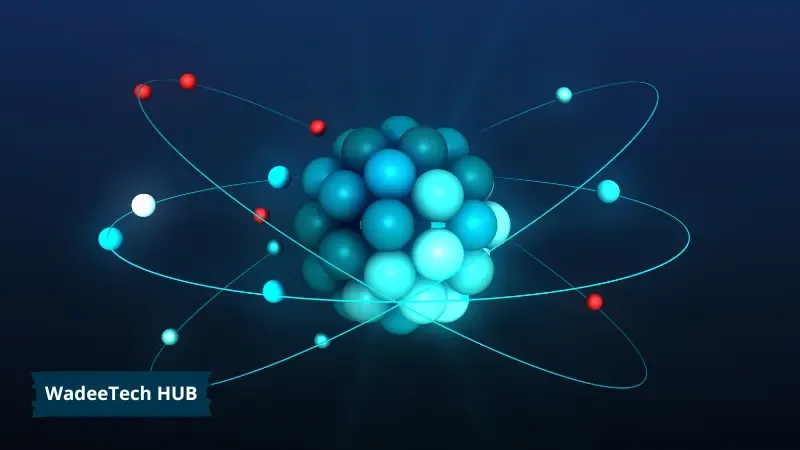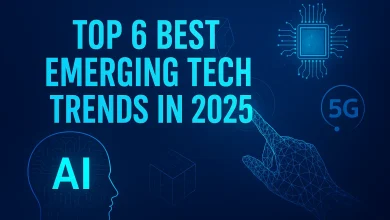How 5G is transforming industries

5G technology is ushering in a new era of digital transformation across all industries, redefining how systems connect, communicate, and operate. Boasting lightning-fast speeds, minimal latency, and extensive connectivity, 5G is driving the evolution of the digital age. In this article, we delve into the ways 5G technology is reshaping industries, fueling innovation, accelerating growth, and enabling smarter, more connected systems across the globe.
How 5G is Transforming Manufacturing with Smart Automation
The transformation of industries through 5G is most visible in manufacturing, where automation and precision are becoming the norm.
With real-time data sharing and predictive systems, factories are moving toward a fully digital and interconnected future.
Smart Shifts in Manufacturing:
- Real-Time Monitoring: Track performance with live sensor data.
- Remote Operations: Manage equipment from anywhere securely.
- Predictive Maintenance: Prevent breakdowns with AI-driven alerts.
How 5G is Transforming Healthcare Through Remote Access
How 5G is transforming industries like healthcare is nothing short of revolutionary. It enables healthcare professionals to deliver immediate, remote care with precision and real-time responsiveness.
Advancements in real-time data exchange and connectivity are enhancing the precision and availability of medical care like never before.
Healthcare Innovations via 5G:
- Telemedicine Expansion: High-quality virtual consultations.
- Remote Surgery: Robotic tools operate with precision.
- Live Patient Monitoring: Real-time data from wearables.
How 5G is Transforming Cities into Smart Urban Systems
5G is changing industries at the city level, enabling urban transformation through real-time monitoring and connectivity.
Smart cities rely on this advanced network to optimize traffic, energy, and infrastructure in real time.
City Tech Upgrades with 5G:
- Smart Grids: Efficient power distribution and use.
- Connected Traffic: Real-time signals and sensors.
- Air Quality Monitoring: Environmental data collection.
Revolutionizing Media Industry Through 5G’s Real-Time Streaming
The media and entertainment sectors are being redefined by how 5G is transforming industries in real-time communication.
With ultra-fast speeds and low latency, content creators and users enjoy seamless experiences.
Media & Entertainment Changes:
- Cloud Gaming: Play high-end games on any device.
- Live Streaming: Broadcast events with instant clarity.
- Virtual Reality: More interactive and responsive worlds.
The Role of 5G in Enhancing Supply Chain Efficiency
How 5G is transforming industries like logistics can be seen in smarter tracking, better fleet control, and instant communication.
These upgrades result in more accurate, safer, and faster supply chains.
Supply Chain Advantages:
- Live Tracking: Monitor shipments with GPS precision.
- Automated Warehousing: Robots manage tasks efficiently.
- Fleet Optimization: AI suggests optimal delivery routes.
How 5G is Transforming Education with Virtual Learning Tools
Industries in education are transforming through 5G, providing real-time connectivity and interactive learning tools.
Students can now learn through immersive platforms, regardless of location.
EdTech Trends Powered by 5G:
- Virtual Classrooms: High-quality video and collaboration.
- AR Learning Tools: Real-time, interactive lessons.
- Global Access: High-speed reach in rural areas.
How 5G is Transforming Finance with Faster, Smarter Banking
The financial world is another example of how 5G is transforming industries, from banking apps to high-frequency trading systems.
Speed and security have become critical advantages in finance thanks to 5G.
5G Benefits in Finance:
- Instant Payments: Faster, seamless transfers.
- Fraud Prevention: Real-time detection systems.
- Digital Banking: Full services with better UX.
Conclusion
The impact of 5G is broad, deep, and only beginning to show its full potential. From manufacturing and healthcare to finance and education, how 5G is transforming industries is evident in faster, smarter, and more connected operations. As adoption continues, those who integrate this technology will lead innovation in the years ahead.


